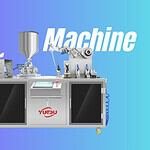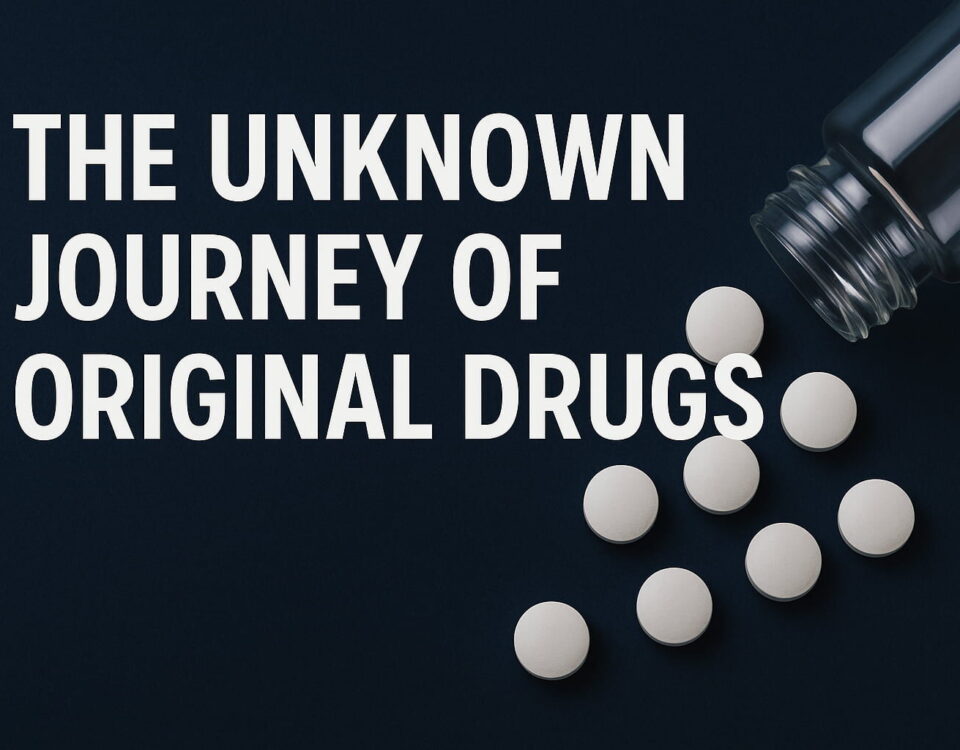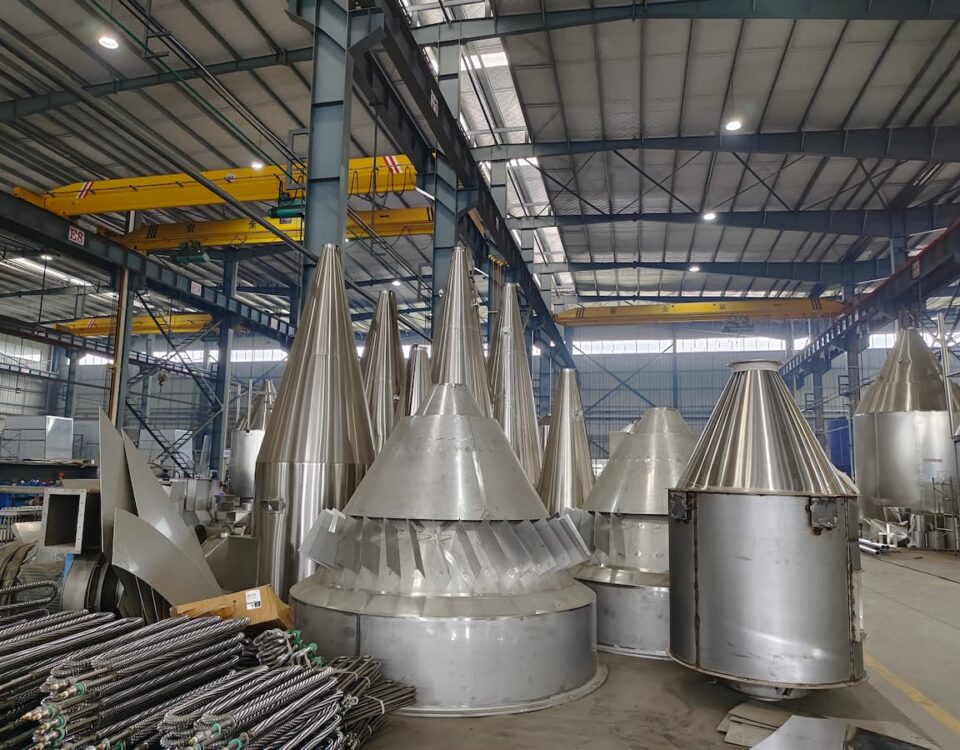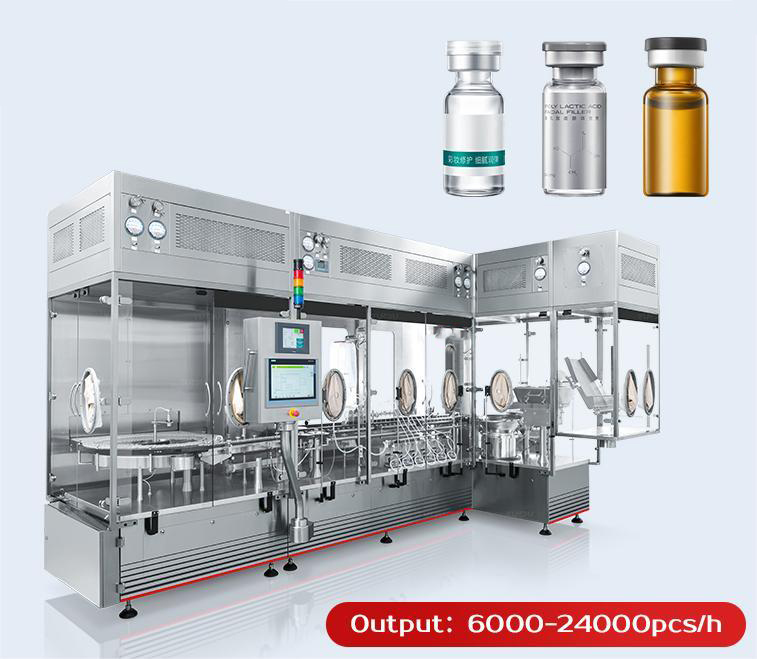
Grand to Attend VINAMAC EXPO 2024 in Vietnam and Showcase China Pharmatical Machinery

Top 4 Best Selling DPP Blister Packing Machines
Which Type of Machine is Used in the Pharmaceutical Industry?
The pharmaceutical industry requires control and proper handling to ensure the quality and safety of medicines. Many machines make this possible, each designed to perform specific tasks with precision, efficiency, and hygiene. This article is your complete guide to different types of pharmaceutical machines and their purpose. Let's dig in!

Processing Equipment
Here's an overview of the various types of pharmaceutical machines that are helpful in processing drugs quickly:
Centrifuges
Industrial centrifuges are pharmaceutical machines that use centrifugal forces to separate fluid or particles of varying density from a mixture. They are useful in purifying and analyzing various pharmaceutical products.
Mixers
As the name implies, mixers are equipment that helps in blending Active Pharmaceutical Ingredients (APIs) and other raw materials to create a homogenous mixture. Some popular types of mixtures used in the pharma industry include high-shear mixtures, fluidized zone mixtures, and vacuum mixers.
Agitators
Agitators are mixers used to blend or stir fluids. They promote chemical reactions, temperature transfer, and solid suspension, ensuring the final drug is safe, effective, and meets the set quality standards.
Heat Exchangers
Heat exchangers are among the most critical types of pharmaceutical machines responsible for transferring heat from one fluid or medium to another. How does that happen? Well, hot fluid and cold fluid both flow on opposite sides of a heat transfer surface where heat is moved from the hot fluid to the cold one.
Heat exchangers find applications in different processes, including evaporation, crystallization, distillation and freezing. They are instrumental in producing temperature-dependent drugs or vaccines while minimizing any side reactions that may impact drug quality.
Cooling Towers
Cooling towers remove excess heat produced during drug formation. You can rely on these towers to cool down ointments before packaging, controlling the temperature of gelatin molding for capsules, or heating or cooling for liquid drug sterilization. A pure steam generator is a good cooling tower option that you can employ in your pharma processes.
Chillers
Chillers are refrigeration systems that aim to cool down or control the temperature of a drug at different stages of production, from the synthesis of active ingredients to the final storage. They also prevent the risk of microorganism growth and drug degradation by protecting against humidity and excessive heat.
High-Pressure Homogenizers
High-pressure homogenizers are types of pharmaceutical machines that utilize abrupt pressure gradients and high turbulence to emulsify or mix two or more liquids, particularly immiscible ones, together. In the pharmaceutical industry, these machines prevent the settling or clumping of drug particles. This ensures that APIs are distributed evenly throughout for stable and effective drug delivery.
Coaters
It's a mechanical device that applies a dry, thin coating of a substance to a drug's surface. The primary goal of this coating is to enhance the visual appeal of the drug so people of all ages can take it without any hesitation. Besides, it also masks unpleasant odors, protects the API, and ensures a controlled drug release.
Blowers
Blowers are machines that blow out gases or air. They are used in solvent recovery in the pharmaceutical industry, to prevent drug contamination, and to create a vacuum during drug packaging.
Capsule Equipment
Capsule equipment is the type of pharmaceutical machine that fills, polishes, and sorts capsules. For instance, you can rely on them to fill the powder-active drug material in empty capsules. Based on your budget, you can either opt for manual, semi-automatic, or completely automatic capsule equipment.
Boilers
Boilers are actually plants that produce heat or steam by heating or boiling water. They are useful in drying, purifying, or sterilizing drugs, maintaining a consistent quality.
Tablet deduster
During manufacturing, dust may settle on the surface of a drug. A tablet deduster is a machine that removes dust from the surface of the tablets, giving them a clean and polished look. It also guarantees that the tablet or drug isn't only efficient but also meets the highest quality standards.
Oven
Pharmaceutical ovens are helpful in drying materials that are required for drug manufacturing. They are also involved in depyrogenation — eliminating or destroying pyrogens — that cause fever and other diseases, so the final drug is safe and high-quality.
Packaging Equipment
Now that you are aware of the many pharmaceutical processing machines let's discuss the packaging equipment you may need:
Bottling and Filling Machines
To streamline the packaging process, bottling and filling machines are used that are responsible for pouring liquid drugs in bottles as well as capsules into a container.
Induction Sealers
Induction sealers are the type of pharmaceutical machines that utilize electromagnetic induction to generate a hermetic seal between a container and its closure. In the pharma industry, it's commonly employed to seal the aluminum foil to a medicinal bottle mouth, preventing air, oxygen, or contamination entry.
Cappers
It's packaging equipment that puts and seals caps on filled glass vials and containers. This prevents medicine from spilling during shipping and enhances overall product quality.
Blister Packers
Blister packers are unit-dose packaging machines that are key in storing and displaying tablets. Pharmaceutical companies use them to pack capsules, soft gels and syringes into blister packs for easy access and more protection.
Labeling Equipment
Drugs often come with proper labels for quick identification and quality assurance. If you want to label the medicines before packaging, you should get labeling equipment that puts precise information labels on bottles, vials, or containers. These machines eliminate errors that are associated with human labeling and also meet regulatory requirements.
Counters
Counters are devices that count the total number of capsules, bottles, or soft gels before packaging for an accurate track record.
Tube Fillers
Tube fillers are also types of pharmaceutical machines that fill and seal tubes with different products, such as ointments, soft gels, and creams. They deliver an exact amount of product into the tube, considering parameters like tube weight and volume.
Conclusion
There are many types of pharmaceutical machines available for processing and packaging drugs. However, it's essential to analyze each machine's usage and opt for the ones that you truly need to boost overall efficiency while reducing unnecessary spending.




